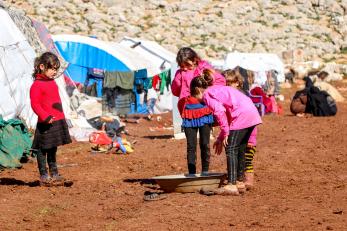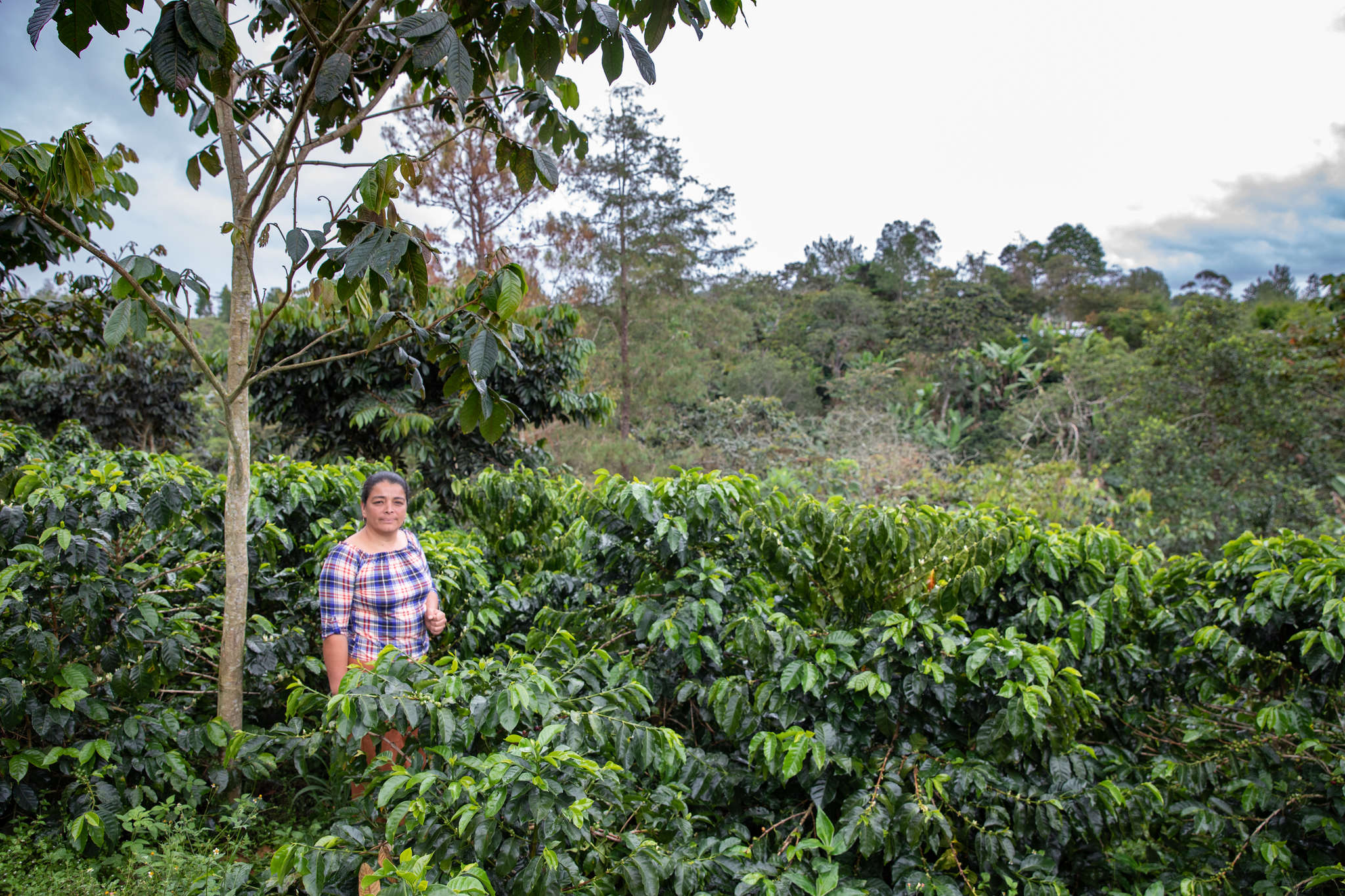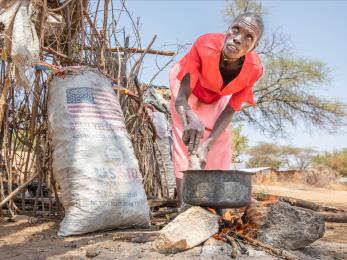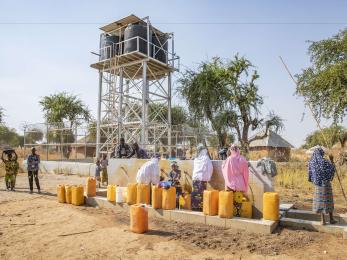Tackle conflict even as we respond to COVID-19

The world marked three difficult anniversaries in March 2021: one year since the World Health Organization named COVID-19 a pandemic; six years of conflict in Yemen; and 10 years since the start of war in Syria. In addition to a shared gravity, the milestones bring to mind the death, sadness and suffering that each has caused. They also remind us of the common purpose required to combat each event, and how much work remains to put these battles in the past.
It is noteworthy, then, that the UK has begun announcing devastating cuts to its aid budget as part of its COVID-19 mitigation plans - with the biggest cut so far announced for Yemen.
No one questions the need for a comprehensive plan to overcome the novel coronavirus. COVID-19 has cost more than 2.5 million lives around the world and devastated economies, including that of the UK. With global poverty, famine and the risk of violent conflict on the rise, however, cutting back on support to the world’s most vulnerable is the wrong answer. This option will ultimately drive further humanitarian need, conflict, insecurity and migration.
Moreover, reducing global humanitarian aid will stymie any hope of beating the pandemic itself. While vaccines offer much-needed hope, they must reach every corner of the world to succeed, particularly countries with poor health systems and instability.
Violent conflict is the primary driver of global suffering and poverty - 80% of the world’s extreme poor are expected to live in fragile states by 2030. In Yemen, 16 million people face hunger. In Syria, this figure is 9.3 million, and growing.
A study by the University of Denver projected that COVID-19 could ignite conflict in 13 more countries through next year, resulting in more countries experiencing conflict than at any other point in the past 30 years. Elsewhere, the effects of virus lockdowns, perceived bias in implementing relief efforts, and the weakening of social networks all risk increasing mistrust among communities, and between communities and the state. In Northern Nigeria, restrictions on religious services and distribution of food aid to alleviate the impacts of the lockdown have reinforced and exacerbated existing grievances between Christians and Muslims.
We must be aware that despite the promise of vaccines, vaccination efforts could further worsen social inequities, divisions and conflict.
In some cases, governments have enforced lockdowns and other restrictive measures in the name of containing COVID-19. In others, such as Nigeria, governments are blamed for the spread of the virus. Without a deliberate effort to overcome these challenges and existing inequalities, vaccine distribution could incite tensions and violence.
The pandemic is not just a health crisis. It is also a driver of inequality that could stir and inflame conflicts for many years to come.
By choosing our responses wisely, we have the power to prevent such negative results.
Opportunities for peace
At the end of January, the Foreign Secretary Dominic Raab declared that the UK wants to be a problem solving, conflict resolving and conflict management country. He has also made commitments to the UK taking a key role in preventing famine and driving effective humanitarian response to major crises.
This bold restatement of shared ambition is welcome, but we must realise it will take more resources than diplomacy alone. Indeed, even as we witness the destabilising forces of conflict, climate and COVID-19, we see the axe fall on critical life saving and peacebuilding projects in some of the world’s most fragile places.
The UK has long been a leader in dealing with the consequences of conflict, as well as in working to get at its root causes: to address the inequality, injustice and division that drive it. Conflict resolution is a cross-cutting issue - violent conflict erodes global development, prevents progress towards gender equity, exacerbates humanitarian crises, and pulls finite resources away from overcoming development challenges. With longer-term efforts to address root causes of conflict - including poor governance, inequality and the climate crisis - we will be better able to achieve our global development goals.
The new Foreign, Commonwealth and Development Office (FCDO) presents an opportunity for the UK to make conflict prevention and peacebuilding central pillars of foreign policy, including putting communities and local participation at the centre of any conflict strategy.
The UK will be hosting two significant events this year – the G7 in June and the UN Climate Change Conference (COP26) in November. Both events provide governments with opportunities to increase diplomatic interventions and to invest in activities that diminish and mitigate conflict much sooner.
Investment in peacebuilding, therefore, isn’t just a moral imperative; it’s smart business that could save money in the long run. The United Nations and World Bank estimate that a more effective approach to preventing conflicts could save between US$5 billion and $70 billion per year. And there is certainly room for improvement. A mere 1.5% of official development assistance (ODA) worldwide is spent on peacebuilding and conflict management.
As we mark one year of pandemic, six years of war in Yemen and a decade of conflict in Syria, we must also understand the best solution for each battle is one that solves them all simultaneously. Abandoning vulnerable communities is not the answer. Rather, we must invest in building lasting peace - including supporting local peacebuilding efforts in conflict-affected places. And if the UK is to live up to its ambition to be a force for good in the world, the UK government must mark these anniversaries by leading by example and continue investing in peace, health and prosperity for all.



